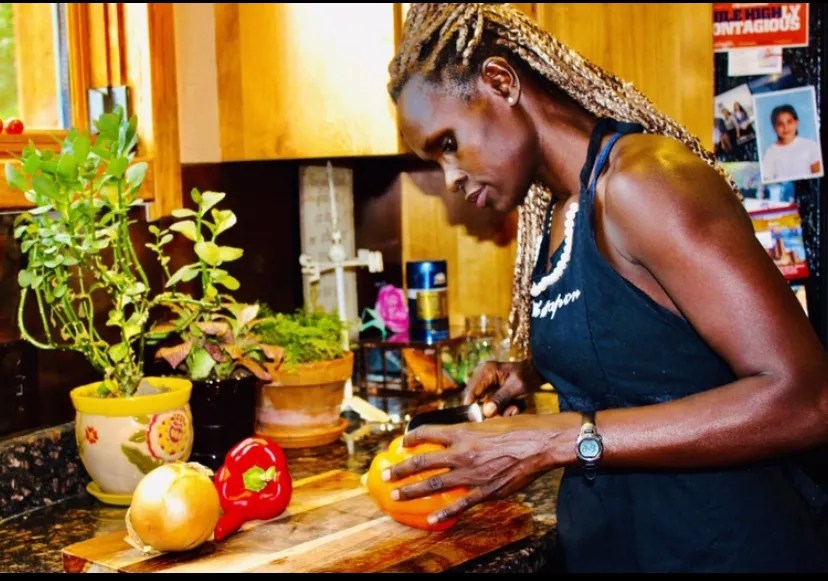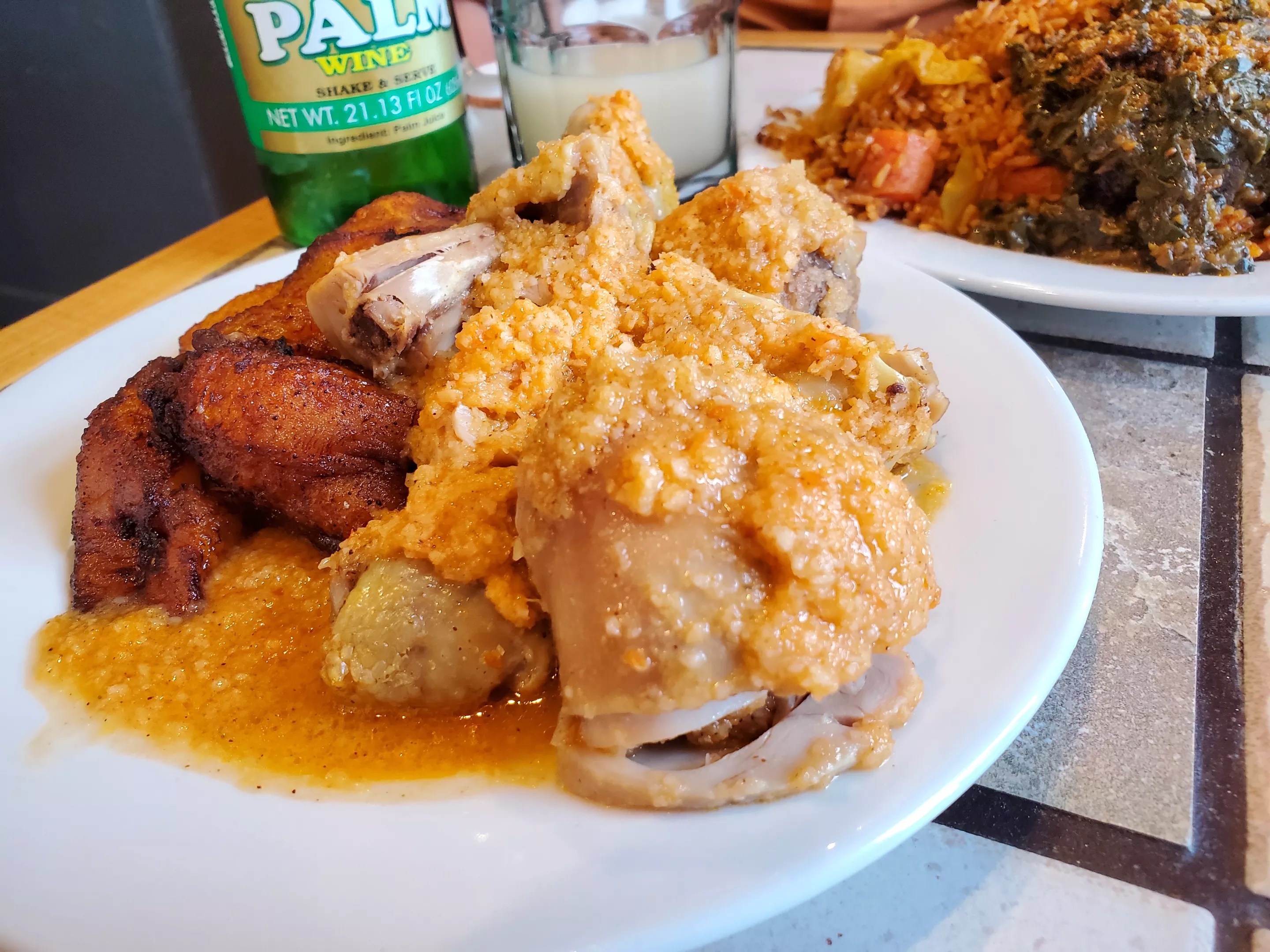
Susan’s Samosas

Audio By Carbonatix
Last summer, Colorado made headlines as the fastest-growing state for Black immigrants, with 400 percent growth from 2000 to 2019, according to a recently released Pew Research Center report. Nationwide, the Caribbean still accounts for the largest share of immigrants, but there has been growing diversity from African countries, with a 348 percent increase from Kenya, 300 percent increase from Ethiopia, 205 percent increase from Somalia, and 200 percent increase from both Nigeria and Ghana.
Over the same time period, there’s been a steady increase in interest in African food and restaurants. With 1.4 billion people, Africa is home to many different cuisines, each with its own history, ingredients and techniques. For most Americans, however, exposure to fare from the second-largest continent in the world is still limited.
The barriers are high for an African restaurateur in Colorado. Most are first-generation immigrants or refugees who come to America under-capitalized and struggling with language and cultural barriers. Many find themselves in the food industry by coincidence and circumstance rather than through formal training paired with a professional career as a chef.
Susan Loriho, CEO and founder of Susan’s Samosas, first learned to cook at a refugee camp, then continued cooking at the Kenyan orphanage where she was taken to escape the decades-long Sudanese civil war. Loriho came to Boulder when she was eighteen to get her degree in early childhood education. She never thought of samosas as a career path; she simply made them for her son. “It’s the only way to get him to eat vegetables, so I will make samosas mixed with meat and vegetables or just vegan samosas,” she laughs.

African Grill & Bar in Lakewood is one place to eat food from across Africa.
Molly Martin
When the pandemic hit and Loriho lost her job as a preschool teacher, her church friends insisted on paying her for the samosas she had always cooked for them. They posted on Instagram and Facebook, encouraging others to contact Loriho for orders. She recalls making $1,000 her first week and realizing, “This is what my calling is; I have to make samosas.” At the suggestion of a friend, she enrolled in EforAll Longmont and found mentors and opportunities to sell Susan’s Samosas at Ruby’s Market and the Boulder County Farmers Market.
Because of her connections, her business has never been stronger. “My website is actually designed by a family [from the] Jewish community who helped me to come to America,” Loriho explains. “When I started my business, they asked me if they can help with my website. They designed it.”
Loriho’s business is especially rare because she established herself in Boulder, a city with a small African community. Support mainly comes from “American people, my Muslim-American friends here in Boulder, and the people from my church,” she says. “Most of my customers that I have are from my church and my friends from the farmers’ market that I’ve connected with.”
Most African restaurants in Denver are located in Aurora, one of the most diverse areas in the state, typically on and around Havana Street. There you’ll find Addis Ababa Restaurant, Nile Ethiopian Restaurant, Portico Eritrean and Ethiopian Restaurant and Bar, Sudan Cafe & Khairat Injera Bakery, Maandeeq East African Restaurant & Cafe, and Ifka Cafe. This proliferation of African restaurants is no accident: On Havana Street, the 4.3-mile corridor from Sixth Avenue to Dartmouth Avenue, was designated as a global business district in 2007. It uses the funding from the special assessment taxes on Havana Street’s property and business owners to host classes and workshops and for marketing and general business development.

African Grill & Bar started in Aurora but is now located in Lakewood.
Claire Duncombe
Chance Horiuchi, executive director of On Havana Street, estimates that 70 to 80 percent of the businesses on the strip are minority-owned, independent small businesses. Unlike in many business districts, the property owners are mostly families, many of whose members are themselves immigrants and multilingual. It’s a source of pride that On Havana Street is able to maintain so many thriving ethnic businesses, and its initiatives reflect considerations for its global membership.
“We actually do a lot of publications and marketing in different languages. Many other communities only do it in Spanish or English, but we try our best to do stuff in the African community, Korean community, and different publications in different languages and have those things translated,” Horiuchi explains.
This makes programs and information accessible to all business owners, from workshops on business insurance and introductions to suppliers that carry specific ingredients to regulations regarding signage in Aurora and learning how to apply for grants available to minority-owned businesses.
Additionally, On Havana Street provides an easy connection to diversity supplier programs. “If you wanted your Mochinut or your Korean hot dogs at the airport,” says Horiuchi, “we can help those businesses get procurement contracts with the airport and get certified, and then also go through licensing and certifications to be able to apply for these opportunities, whether they want to be at the airport or they want to be a vendor at CU Denver.”
Those kinds of programs are especially important for African food entrepreneurs, who can only grow their business if they serve those beyond their immediate community. “Africans like eating, but they think they know the food and can cook it,” explains Theodora Osei-Fordwuo, co-owner of African Grill & Bar. “So they might prefer going out and buying food from different cultures instead of buying food from their own people. So that is a problem, because running this business, if we base it on basically Africans, we wouldn’t be in business.”
Osei-Fordwuo and her husband, Sylvester, also started out in Aurora – on Peoria Street – before moving African Grill & Bar to Green Valley Ranch in 2013 and opening a Lakewood location six years later. In 2020, the couple made the decision to close the Green Valley Ranch location and focus on their Lakewood restaurant. Their customers are mostly Caucasian, so the couple has broadened the menu to include not only food from Ghana (where they’re from), but a little bit of everything from all across Africa. Their made-from-scratch fare has been a hit with patrons, and an additional location is a possibility in the future.

Konjo credits its success to its ability to adapt to American culture and expectations.
Michael Emery Hecker
Americans’ unfamiliarity with much of African cuisine is a blocker for many African restaurateurs in Colorado. But Fetien Gebre-Michael, co-founder of Konjo Catering, the Ethiopian Food Truck and Konjo Ethiopian Food, believes that proactively addressing this makes Konjo more inviting to American eaters. “[Americans] do like the fact that [Konjo] is easily accessible. You can walk up, you can speak to someone that’s knowledgeable,” Gebre-Michael says. “They have questions about our food no matter what descriptions we put up. No matter what we print out, they always ask questions.”
Gebre-Michael thinks a key ingredient of Konjo’s success is her and her partner’s ability to adapt it to American culture and expectations. “There are a lot of barriers to entry when it comes to African restaurants [and their owners], because part of it is not being knowledgeable enough and not having the resources,” she notes. “They’re more comfortable in Aurora around their own people, and you just can’t grow if you’re just catering to your own [people].”
She highlights the changes that Konjo has made to be more accessible, such as training her staff on how to educate customers on all types of African cuisine, making the service speedier (a traditional Ethiopian restaurant takes 30 to 45 minutes to serve your food), and making the design and decor of her food stall in Edgewater Public Market inviting and modern.
However many barriers there are for African restaurateurs, Gebre-Michael wholeheartedly believes that Coloradans have the appetite for the fare. “We’re not in the generation of the ’50’s now, where everyone just sticks with American food. They’re looking for stuff outside of American food. They want to experience something; they want an experience,” she says. “So give them an experience. Let ’em try it.”